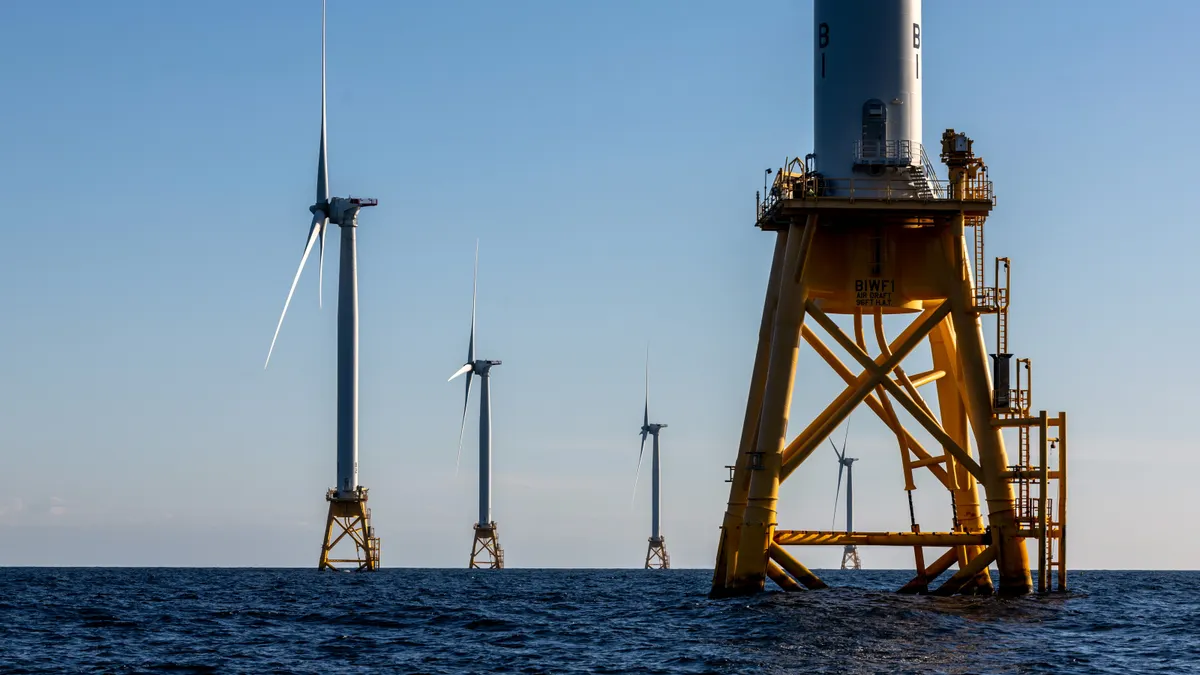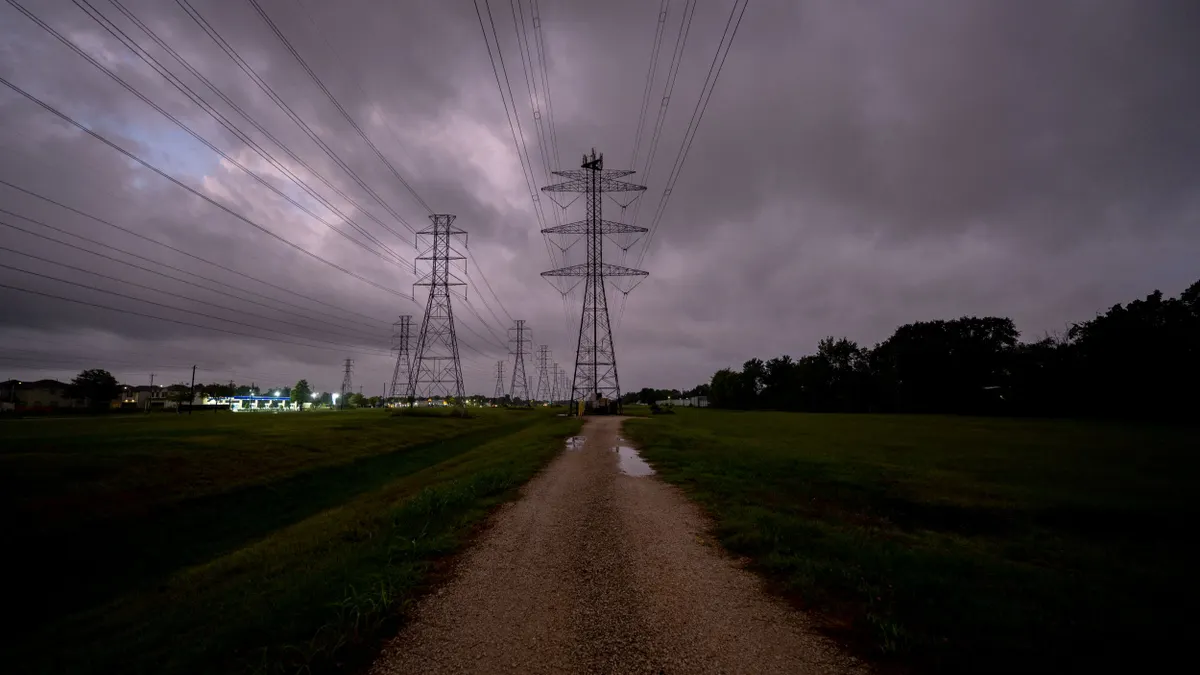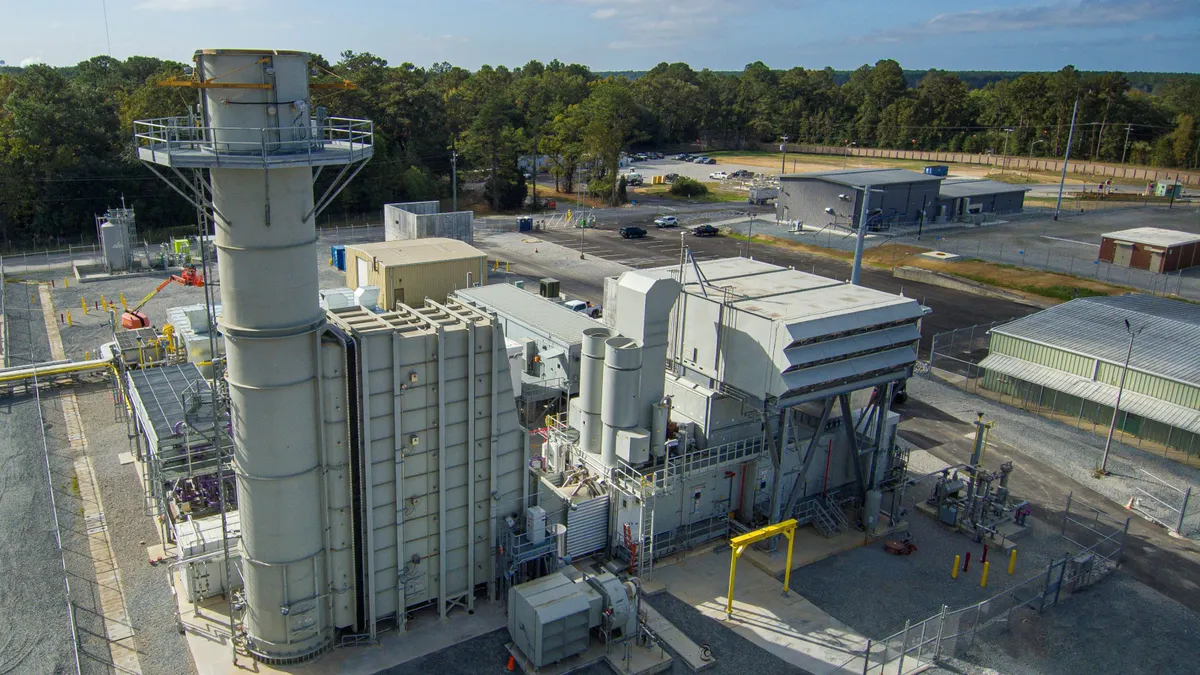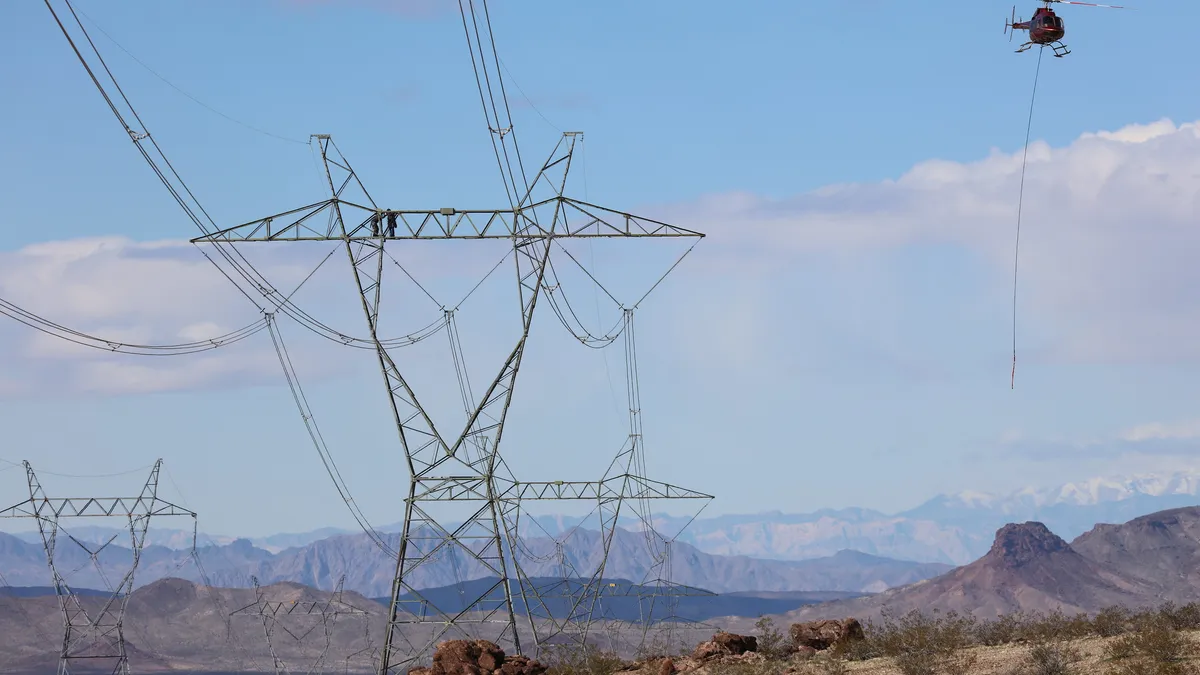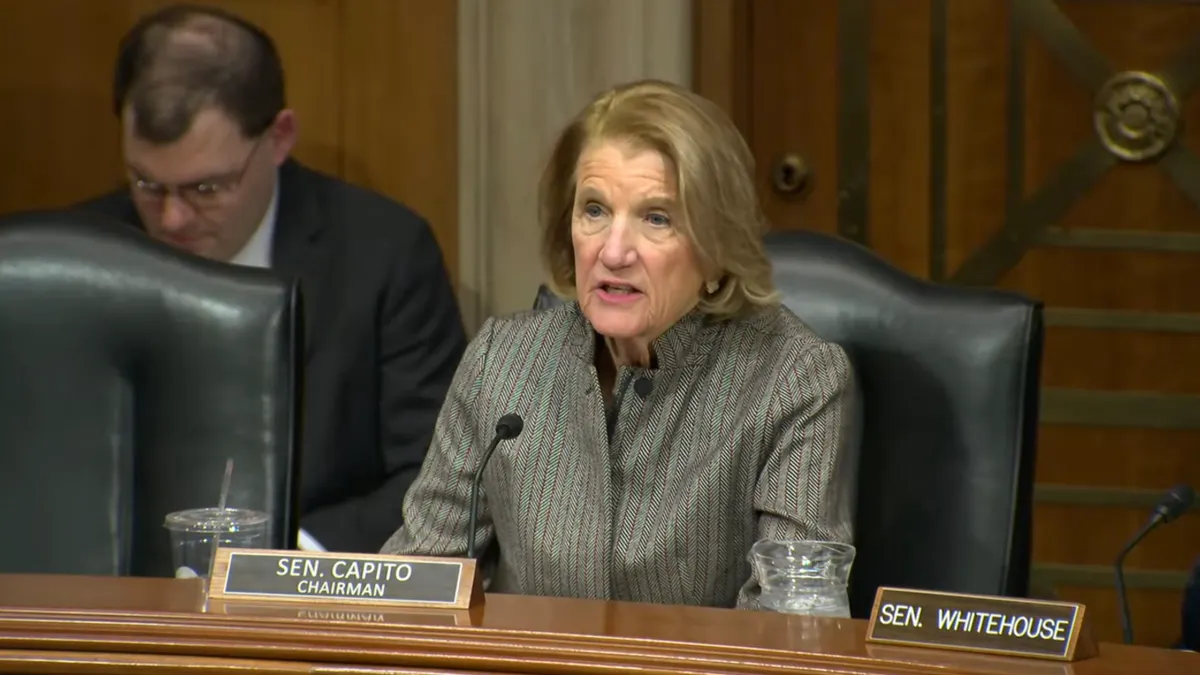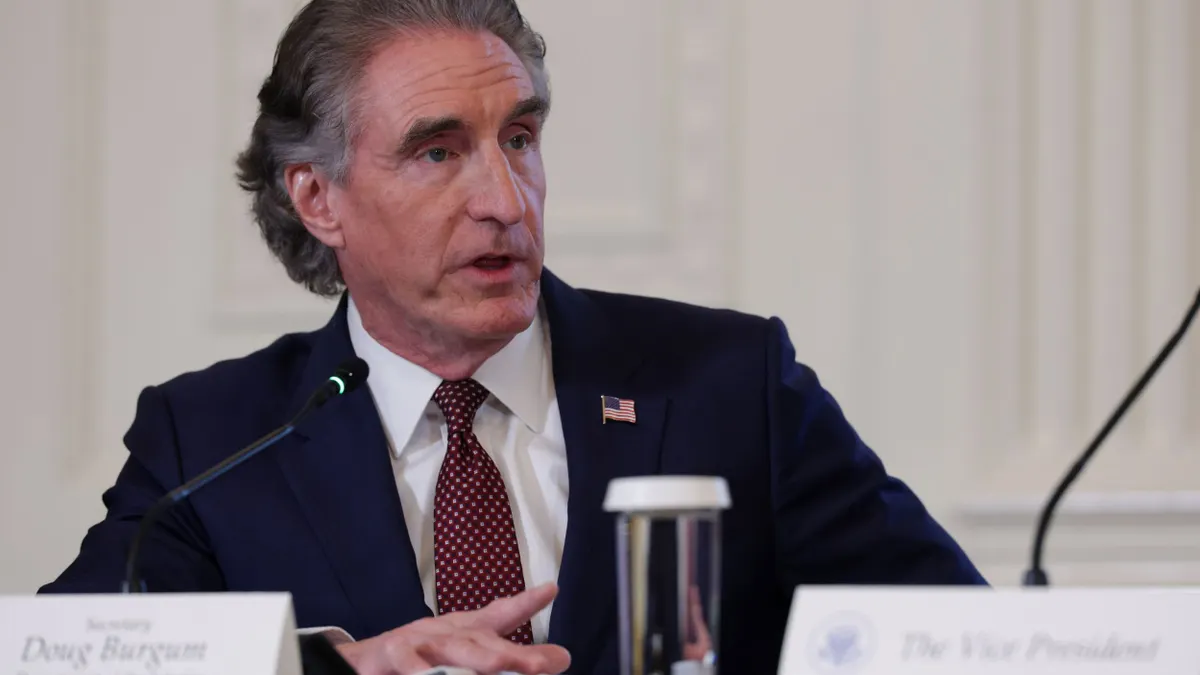Fitch Ratings on Monday placed Eversource Energy and its utility subsidiaries on “rating watch negative” over concerns the Trump administration’s stop-work order on the Revolution Wind offshore wind farm could weaken the company financially.
Although Eversource sold its 50% stake in the 700-MW offshore wind project last year to Global Infrastructure Partners (GIP), the Springfield, Massachusetts-based company remains obligated for certain project costs, Fitch said.
Also, Eversource must make sure that GIP receives a 13% pre-tax internal rate of return on its investment in Revolution, Fitch said. Eversource recorded about $360 million of liabilities when it sold its share in Revolution Wind to GIP to reflect increased construction costs and delays, Fitch noted.
“The [stop-work] order creates significant uncertainty and could meaningfully delay construction, causing large cost overruns or abandonment,” the credit ratings agency said. In a worst-case scenario, that could lead to a one-notch credit rating downgrade for Eversource and its subsidiaries, Fitch said.
Eversource is a publicly traded company with regulated utility subsidiaries serving about 4 million customers in New Hampshire, Connecticut and Massachusetts.
On Sept. 4, Ørsted, which owns half of the Revolution wind project with GIP, asked the U.S. District Court in Washington, D.C., to lift the work-stop order on the project off the coast of Rhode Island and Connecticut, which the Danish company says is 80% complete.
If the lawsuit is successful, construction on the project may resume, limiting cost overruns, but the project “is likely to remain subject to continued judicial review and uncertainty,” Fitch said.
In its report, Fitch said Eversource has a “relatively low-risk” $24 billion, five-year capital expenditure plan that includes about $10.2 billion in electric distribution facilities, $6.8 billion in Federal Energy Regulatory Commission regulated transmission and $6 billion in natural gas distribution infrastructure.
FERC-regulated transmission facilities account for 36% of Eversource’s rate base, followed by Connecticut and Massachustts at 29% each and New Hampshire at 6%, according to Fitch. Fitch said it views FERC as one of the most “constructive” U.S. utility regulators due to timely cost recovery and its formulaic rates of return.
Shakeup in New Hampshire?
One of Eversource’s utilities — Public Service Co. of New Hampshire — has a low-risk business profile, partly because more than half its rate base falls under FERC’s jurisdiction, which provides “attractive” return on equity, according to Fitch.
New Hampshire has a “balanced” regulatory environment, according to Fitch.
“Although authorized ROEs are below the industry average, mechanisms like the transmission cost adjustment mechanism and lost revenue adjustment provide some cash flow stability,” the ratings agency said.
In July, the New Hampshire Public Utilities Commission approved a $100.7 million rate hike for PSNH, down from a request of $102.8 million. The decision was “in line with expectation,” Fitch said, noting it included a $61.2 million temporary rate increase.
In an Aug. 1 earnings conference call, Eversource Chairman, President and CEO Joseph Nolan said the rate decision was good for PSNH customers and the company.
“It was a very, very good case that allowed us to flesh a lot of the issues out,” he said, adding that the utility received a 9.5% ROE. “The regulatory climate there is very favorable.”
The PUC’s decision was not without fallout, however. Commission Chairman Daniel Goldner’s term ended on Monday, and New Hampshire’s Democratic Gov. Kelly Ayotte — a critic of the rate hike — said she would not reappoint him.
“We’ve begun an immediate search for a replacement to ensure the regulatory process at the PUC is transparent, accountable, and protects Granite Staters from rate hikes,” Ayotte said on social media. “In the meantime, we’ll continue working to promote an all-of-the-above energy strategy to lower costs.”
The New Hampshire Office of the Consumer Advocate last month challenged the rate hike. The office wants the PUC to reverse various aspects of its decision, including allowing a fixed charge to climb over time to $43 a month from $14 last year, as well as the ROE, which the office contends should be 8.1% given New Hampshire’s low-risk investment environment for utilities.
“The negative reaction of the NH Governor and other key stakeholders is cautious, although [Eversource’s] distribution rates should be largely locked-in for a period of time,” Jefferies equity analysts said in a note on Wednesday.



